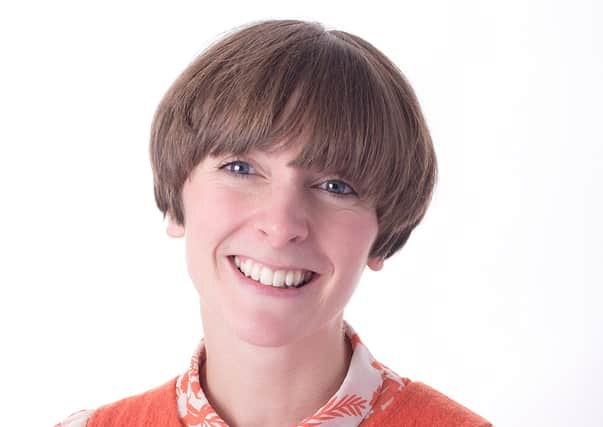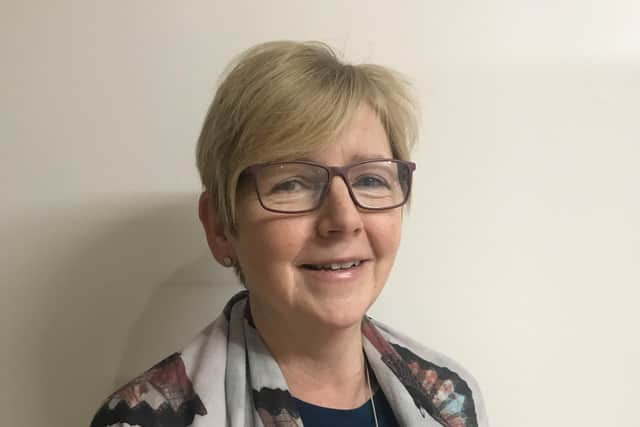When things come apart, we can put them back together differently – Sara Redmond and Cath Cooney


Never has there been a greater understanding of how interconnected our world is. The decisions we make individually and collectively ripple across the systems on which our society is reliant – health and social care, economic and education to name a few. Lockdown has resulted in a range of consequences, some that we could have predicted and some less so. We hear of an increase in gambling-related harm from people being targeted in isolation, a reduction in people accessing usual healthcare for existing long-term conditions, with the knock-on effect of potentially widening health inequalities and impact on people’s self-management of their long term conditions.
As a membership organisation, the ALLIANCE is acutely aware that many people are struggling as the impact of the pandemic causes isolation, panic and distress. Awareness has heightened of a deep need for transformation in the ways we live and work and the importance of taking a human-rights based approach, of supporting self-management and independent living.
Advertisement
Hide AdAdvertisement
Hide AdThe recent Scottish Government’s Covid-19 Framework for Decision Making offers some hope and recognition that “when things come apart, there is always the opportunity to put them back together differently”. It is vitally important that we involve people in shaping the plans we make to recover and renew our services and systems. We have learned, without exception, that in order to transform our health and care system we must design it with the people who are directly involved and affected by it.


If we fail to do so, we risk designing solutions based on unconscious bias rather than seeking to understand the world through the experiences of people across society. We have been hearing from ALLIANCE members, people with long-term conditions, disabled people and unpaid carers, that many people currently feel forgotten about or their lives feel devalued by some responses taken. Our members have told us about families of disabled children and young people who are now caring for their children with limited support and without receiving a shielding letter that has left them feeling forgotten.
Whilst it may feel too early to begin attending to the world we wish to influence when so many people continue to suffer, we are already learning that we have a profound opportunity to support each other to come through this stronger and fairer. We can influence whether society grows apart or together, and really see the enormous potential for positive change. Issues of increasing hardship and poverty are real, and conversations about universal basic income are promising.
If we are to renew our country, building a fairer and more sustainable economy and society then we must not shortcut the co-design phase. We must engage with people and communities across Scotland to share stories about the impact this has had and will continue to have on their lives.
Agile coordination and integration across agencies and sectors have been even more vital. At the ALLIANCE we are sharing the work of the third, health and social care sectors during the Covid-19 outbreak through our Community in Action series. This describes the rapid action being taken by third- and statutory-sector organisations working together to provide services. Such organisations have mobilised to provide essential support to their communities across the country by moving services online and developing new ways of working to cater to urgent needs. Barnardo’s Scotland, Royal Blind and Simon Community are just some of the organisations we have heard from that have acted with agility to support people as the pandemic heightens vulnerabilities. Humans of Scotland gives a voice from the perspective of people living through these most challenging of times.
The ALLIANCE and our members have been providing vital information and support to people with long-term conditions, disabled people and unpaid carers, ensuring that people have information in an accessible format, offering their services and self-management support through digital channels, and influencing policy and advocating for people’s lived experience to be at the heart of decision-making.
The Scottish Government has set out its overarching commitment to an approach that fulfils its duties to human rights, equality and social justice. At the ALLIANCE we believe this is only possible by actively engaging with, and involving, people and communities. The response from people across Scotland, and globally, has been profound. We must learn both from the deep challenges and hardships that people face, and from the remarkable acts of kindness, selflessness and resilience that we are witnessing.
Sara Redmond, Assistant Director and Cath Cooney, Director of Development and Improvement, Health and Social Care Alliance Scotland
Comments
Want to join the conversation? Please or to comment on this article.